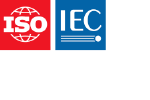Тезис
ISO/IEC 19795-4:2008 prescribes methods for technology and scenario evaluations of multi-supplier biometric systems that use biometric data conforming to biometric data interchange format standards.
It specifies requirements needed to assess
- performance available from samples formatted according to a standard interchange format (SIF),
- performance available when samples formatted according to a SIF are exchanged,
- performance available from samples formatted according to a SIF, relative to proprietary data formats,
- SIF interoperability by quantifying cross-product performance relative to single-product performance,
- performance available from multi-sample and multimodal data formatted according to one or more SIFs, and
- performance interoperability of biometric capture devices.
In addition, ISO/IEC 19795-4:2008
- includes procedures for establishing an interoperable set of implementations,
- defines procedures for testing interoperability with previously established sets of implementations, and
- gives testing procedures for the measurement of interoperable performance.
It does not
- establish a conformance test for biometric data interchange formats, or
- provide test procedures for online data collection.
Общая информация
-
Текущий статус: ОпубликованоДата публикации: 2008-06Этап: Подтверждение действия международного стандарта [90.93]
-
Версия: 1
-
Технический комитет :ISO/IEC JTC 1/SC 37ICS :35.240.15
- RSS обновления
Жизненный цикл
-
Сейчас
ОпубликованоISO/IEC 19795-4:2008
Стандарт, который пересматривается каждые 5 лет
Этап: 90.93 (Подтверждено)-
00
Предварительная стадия
-
10
Стадия, связанная с внесением предложения
-
20
Подготовительная стадия
-
30
Стадия, связанная с подготовкой проекта комитета
-
40
Стадия, связанная с рассмотрением проекта международного стандарта
-
50
Стадия, на которой осуществляется принятие стандарта
-
60
Стадия, на которой осуществляется публикация
-
90
Стадия пересмотра
-
95
Стадия, на которой осуществляется отмена стандарта
-
00


